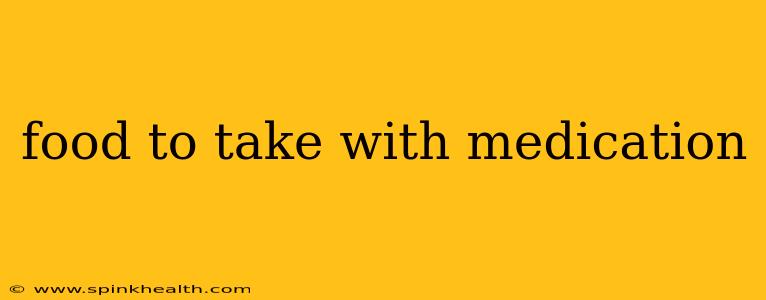The Unexpected Partnership: What to Eat (and Avoid) When Taking Medication
We've all been there: that tiny, slightly intimidating pill stares back from the palm of our hand. We swallow it down with a gulp of water, and… that's usually where the thought process ends. But did you know that what you eat alongside your medication can significantly impact its effectiveness, and even your overall health? This isn't just about pairing your meds with a glass of water; it's about a deeper understanding of the complex relationship between food and pharmaceuticals. Let's explore this fascinating partnership, uncovering some surprising truths along the way.
What Foods Interact with Medications?
This isn't a simple yes or no answer. Many foods can influence how your body processes medication. The effect can range from slightly reduced effectiveness to severe and even dangerous interactions. Some common culprits include:
1. Grapefruit: This juicy citrus fruit contains compounds that inhibit certain enzymes in your liver. These enzymes are responsible for breaking down many medications, meaning grapefruit can increase the concentration of the drug in your bloodstream, leading to potentially harmful side effects or an overdose. This interaction applies to numerous medications, including statins, some blood pressure drugs, and certain anti-anxiety medications. Always check with your doctor or pharmacist before consuming grapefruit if you are on any medication.
2. Dairy Products: Some medications, particularly antibiotics like tetracycline and ciprofloxacin, can bind to the calcium in dairy products. This binding reduces the absorption of the medication, making it less effective. It's usually recommended to separate dairy consumption from these antibiotics by a couple of hours.
3. High-Fat Foods: The presence of high fat in a meal can slow down the absorption of some medications, delaying their effect. This is particularly important for medications that need to be absorbed quickly.
4. Alcohol: This is a significant consideration, as alcohol can interact with a wide variety of medications, from pain relievers to antidepressants. The combined effects can be unpredictable and potentially dangerous, sometimes leading to increased drowsiness, liver damage, or other serious health consequences.
Can Certain Foods Enhance Medication Effectiveness?
While many food-drug interactions are negative, some foods can actually support medication efficacy. This isn't about boosting the dose; it’s about creating a more favorable environment for absorption and minimizing side effects. For example:
1. Foods Rich in Vitamin K: Certain anticoagulant medications (like warfarin) work by reducing blood clotting. Foods high in vitamin K (such as leafy green vegetables) can counteract this effect. Consistency in your vitamin K intake is crucial for maintaining the correct balance while on these medications. Sudden changes in vitamin K consumption can significantly alter your blood clotting levels.
2. Fiber-Rich Foods: Some medications, particularly those that can cause constipation, benefit from the inclusion of fiber-rich foods in your diet. This helps to maintain regular bowel movements and prevent uncomfortable side effects.
What Should I Eat with My Medication?
There is no one-size-fits-all answer to this. The ideal accompaniment to your medication depends entirely on the specific medication and any potential interactions. Always consult your doctor or pharmacist for personalized guidance. They can provide specific recommendations based on your individual health status and the medications you are taking.
What About Supplements and Medications?
The interaction between supplements and medications is as complex as that of food and medications. Some supplements can enhance or reduce the effect of your medication. Always discuss any supplements you are considering with your healthcare professional before incorporating them into your routine.
In Conclusion:
The relationship between food and medication is a subtle yet powerful force impacting your health and well-being. Understanding potential interactions is vital for optimizing treatment effectiveness and minimizing side effects. Remember that this information is for general knowledge and should not replace the advice of a healthcare professional. Always consult your doctor or pharmacist before making any changes to your diet while on medication. Your health is a priority, and informed decisions are key to achieving the best possible outcome.

